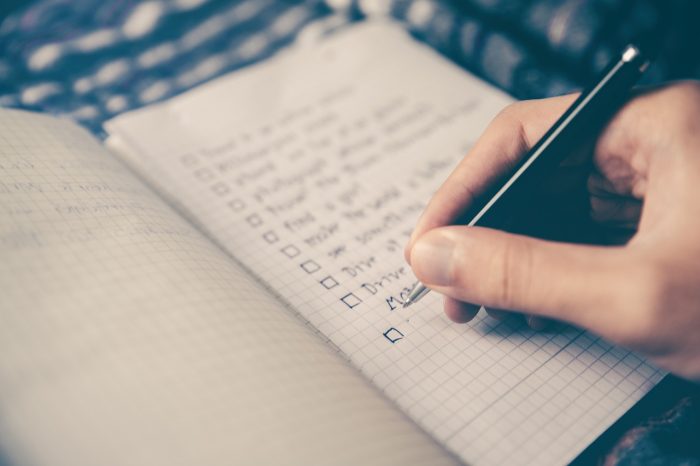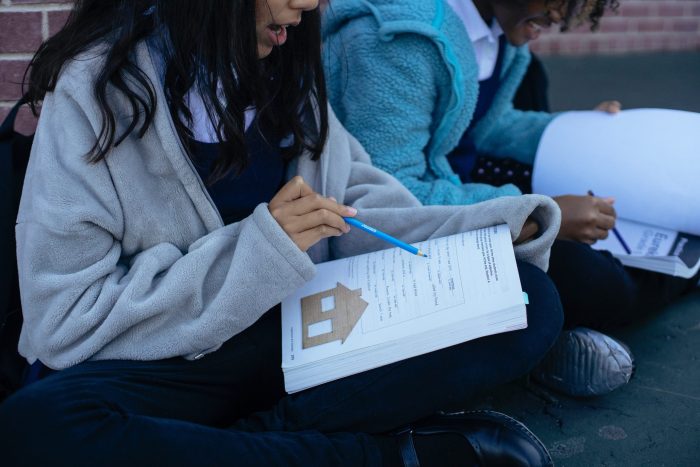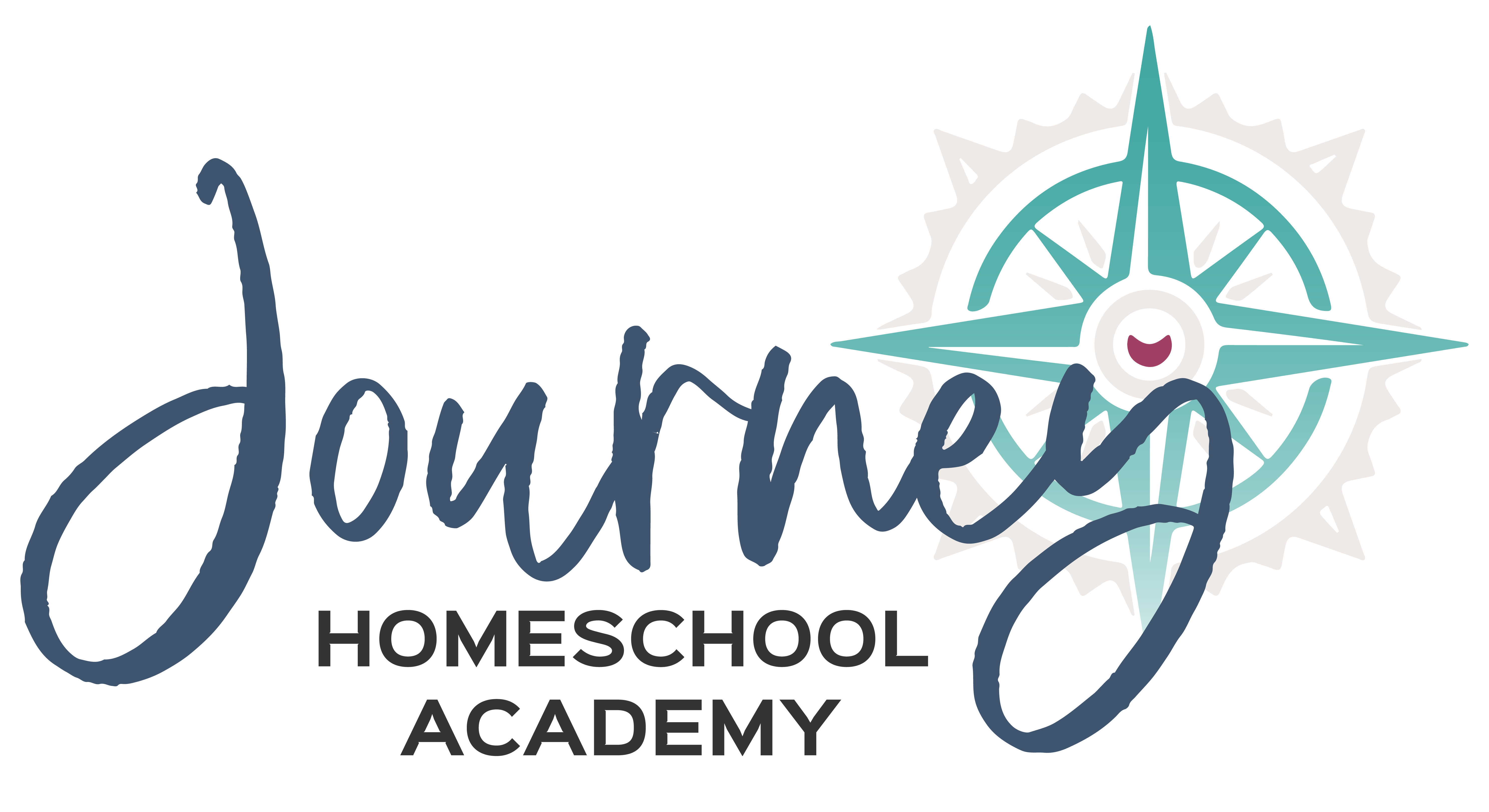Homeschooling in high school gives you as the teacher an extraordinary opportunity to give your teen the tools they will need to succeed in a college education environment. My own mom did an incredible job in preparing me for a college education. I excelled in my classes and felt well-equipped to take on a job and a full class schedule. After twelve years of homeschooling, my mom had done it! My homeschool graduation signified a big moment for me as a graduate, but it was an even bigger accomplishment for my mom, as the teacher. Her “job” was successfully completed, but mine was just beginning as I headed off to a public university.
As a homeschooling parent, you have the privilege of preparing your child with the tools they’ll need to excel in college. I’ve pulled these straight from my own experience in college and from the hard work my mom did to make me ready for life beyond high school.
In no particular order …

Tool #1: The Ability to Write a Strong Outline

Writing was an important part of my homeschool education. Every subject requires some form of writing! I wrote many papers in high school, and every paper that I wrote, whether essay, short story, or research paper, was prefaced with an outline. The outline had to be completed before I started writing, and it set the groundwork for well-thought-out papers that flowed well and got straight to the point.
The outline structure followed the teachings of the Institute for Excellence in Writing (IEW), and I attribute it to my success in every single writing class I took in college, including a journalism class unrelated to my degree. But because I knew how to write a good outline, I was able to write excellent articles for that class.
Tool #2: Thorough Notetaking Skills
In a booming technology world, I’m the odd one out. I brought my notebook and pencil to every class and took notes old-school style – by hand. I had a nice laptop, but I felt I could take notes more effectively if I was writing things down (plus, computers are distracting).
Whether your student likes to take notes in a notebook or on the computer, it’s important that they start doing so before they attend college classes all day, every day. When taking notes, these skills helped me tremendously:
- Don’t write down every single word! You’ll get behind and frustrated.
- Organize your notes – date, time, course, etc. I had a notebook for each class.
- Review your notes after class. For me, I took this time to copy my notes from my notebook to my computer. It was a great way to review and consolidate what I wrote!
- Have fun with notetaking! Use fun pens, highlighters, and doodles. Make your notes your own, and you’ll find yourself looking forward to the hours of notetaking ahead of you in college.
(Not sure how to start training your student on notetaking? Keep reading to the end for a free training video you can snag to share with your teens.)
Tool #3: Effective Studying Habits

Working on developing good study skills is an important part of your student’s high school education, especially with an increase in quizzes and tests. In college, it’s typical to see the school library completely packed on a Sunday night. Students are cramming all of their studying into one night, in hopes that they’ll wake up the next morning and remember everything they learned at 3 a.m. the night before. I attempted this foolish endeavor a few times, and my grades did NOT appreciate it.
Start by incorporating studying throughout your high schooler’s normal daily schedule. There will be times when extra evening studying is needed. However, by spending shorter amounts of time studying throughout the day, they will retain information much better.
This might be the most important part of creating study habits: there are MANY ways to study! Many students study by reading the material over and over…AND over again. I don’t recommend this! Studies have shown that simply reading over the material repeatedly does not help with information recall. There are many effective study techniques that will help your student study smarter, not harder. Be sure they know what those are. We’ve provided a free training for your high schooler to help them learn these good study techniques, giving them a leg up in developing this important skill. Read to the end of this article to learn more!
Tool #4: The Ability to Create (and follow) a Schedule
High school is an excellent time to start preparing for the independence of college. Homeschooling gives you the opportunity to give your high schooler a little more “leash” each year to take charge of their schedule (academic and otherwise) and practice self-management. By the time I was a junior in high school, my mom would hand me my planner each Sunday night and give me the responsibility of scheduling my coursework for the week. She still supervised my learning, but I was in charge of getting it done.
A physical planner was a lifesaver for me in high school and college. However, you could use any number of digital planners like Google calendar, Trello, or even a Google doc. Alternatively, you could use this free homeschool planning printable. By creating a daily schedule for upcoming tasks, older students can space out their school assignments and work around their other events and activities.
Tool #5: Strong Reading Comprehension

If you think your student has to do a lot of reading in high school, just wait until they reach college! After spending hundreds on textbooks, I was left with a giant stack of books and a relatively short timeframe to read them all. Some didn’t even have pictures (gasp!).
To complete homework assignments and tests, I knew that I’d have to thoroughly read the material in front of me, no matter how tedious it would be. To increase reading comprehension, I employed a few skills that I was taught in high school:
- Write down questions you may have as you read (and Google them later).
- If you own the textbook, grab a highlighter and highlight key points.
- Utilize SparkNotes for book summaries. I would actually look up a summary before I started. reading so that I had a better idea of what I was about to learn!
- Read the material aloud. This is especially helpful for auditory learners.
- Read in an environment where you learn best. For me, it was at the library, with headphones in, completely zoned out from the distractions around me.

Prepare Now for Success Later!
If you teach your homeschooled high schooler how to use these tools now, they’ll be much farther ahead than most kids who enter college. At Journey Homeschool Academy, we’re dedicated to providing high school curriculum and resources that will prepare your student for whatever they choose to pursue after high school.
As part of this important preparation, we want to offer you two FREE training videos that further the discussion of developing strong study skills and thorough note-taking. Arm your student with research-backed, time-tested study techniques and notetaking skills to help them become a successful student. But there’s no need to limit using these techniques in school. They can be applied to all areas of life to assist in lifelong learning.

